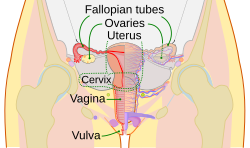 |
| A molecular model of L-glutamine. Image courtesy Jynto via Wikimedia Commons |
CANCER DIGEST – July 31, 2016 – A new clinical trial set to get under way later this summer will try to determine if denying certain types of colorectal cancer cells a specific nutrient will starve them to death.
The Case Western Reserve University trial is based on laboratory and mouse studies showing that colorectal cancer cells with a genetic mutation called PIK3CA died when deprived of the nutrient glutamine, which is an amino acid used by cells to make proteins. This mutation is located in a gene critical for cell division and movement, and is found in approximately one third of all colorectal cancers. Glutamine is the most abundant free amino acid in human blood and is mostly made in muscle tissue.



